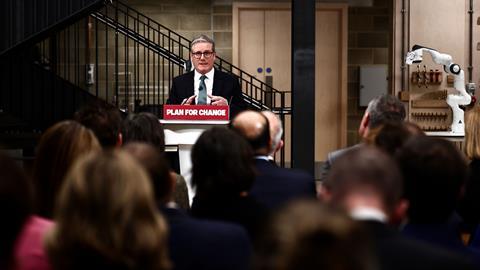Calls for clarity on the regulation of artificial intelligence technologies were a common theme to lawyers' responses to the AI Opportunities Action Plan unveiled by the government this week. Unveiling the plan, prime minister Sir Keir Starmer suggested that the UK could take 'a distinctively British approach' to pro-innovation regulation: ‘We don’t need to walk down a US or an EU path’, he told journalists.
Responding to the announcement, Law Society president Richard Atkinson said that law firms are already using AI in their services, but warned of a 'technology gap' in the profession. He welcomed the plan for an AI Knowledge Hub containing 'best-practice guidance, results, case-studies and open-source solutions'.
Atkinson also called for access to government data to train systems to support access to justice. 'We need to close the gap for unmet legal needs, maintain public trust and improve access to justice by establishing transparent, ethical and privacy-preserving data infrastructures and datasets,' he said. 'This includes increasing regulatory capabilities and providing legal certainty through responsible AI regulation.'
The action plan, drawn up by technology entrepreneur Matt Clifford, states that the current legal uncertainty about IP in data for training AI systems is hindering innovation. 'This has gone on too long and needs to be urgently resolved.'
However lawyers pointed out that establishing a UK regulatory regime might not be simple. Fiona Ghosh, AI specialist at international firm Ashurst, said: 'In contrast to the UK's current sector driven approach to AI rulemaking, the EU has set the benchmark for an overarching AI regulatory framework. Whilst some may say that the "rules-based" European system hinders innovation and investment, there is no doubt that, much like data protection, the region is setting the global standard in holding big tech to account. Our ability to deviate to more "user-friendly" rules may therefore present an opportunity for the UK to balance consumer protection, copyright protection and technical logical innovation. But it needs to move fast.'
This article is now closed for comment.




























7 Readers' comments